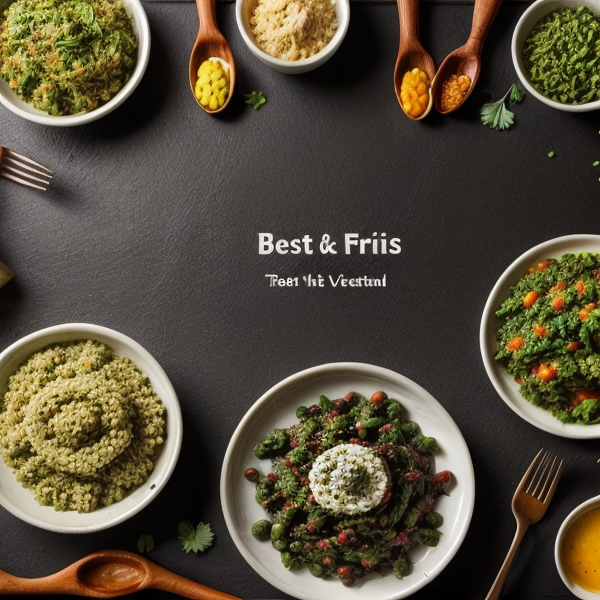Iron-Rich Foods for Balanced Vegetarian Eating

Title: Iron-Rich Foods for Balanced Vegetarian Eating
Introduction:
Being a vegetarian or vegan can be a healthy and nutritious way of life, but it’s important to make sure you’re getting enough iron in your diet. Iron is an essential mineral that plays a crucial role in transporting oxygen throughout your body, supporting immune function, and maintaining energy levels. If you’re not consuming enough iron, you may experience fatigue, weakness, and other health problems. Fortunately, there are many delicious and nutrient-dense plant-based foods that are rich in iron. In this article, we’ll explore some of the best sources of iron for vegetarians and provide tips on how to incorporate them into your daily meals.
Best Sources of Iron for Vegetarians:
1. Beans and Legumes: These versatile plant-based proteins are also excellent sources of iron. Some of the top sources include black beans, kidney beans, lentils, chickpeas, and split peas. A half-cup serving of cooked beans or legumes provides approximately 3-4 mg of iron.
2. Dark Green Leafy Vegetables: Spinach, kale, collard greens, turnip greens, mustard greens, and Swiss chard are all packed with iron. While these leafy greens contain non-heme iron (which is less easily absorbed by the body), they are still valuable additions to a balanced diet. To increase their bioavailability, pair them with vitamin C-rich foods like bell peppers, tomatoes, or citrus fruits.
3. Nuts and Seeds: Many nuts and seeds are good sources of iron, including pumpkin seeds, sunflower seeds, almonds, cashews, and hazelnuts. A quarter-cup serving of dry roasted nuts or seeds provides about 1-2 mg of iron. Tahini, made from ground sesame seeds, is another great source of iron for vegetarians.
4. Whole Grains: While whole grains are not typically thought of as being high in iron, several varieties are actually good sources. Brown rice, quinoa, barley, and fortified breakfast cereals are all good choices. A half-cup serving of cooked brown rice or whole-grain bread provides about 1-2 mg of iron.
5. Dried Fruit: Raisins, apricots, prunes, and dates are all good sources of iron. However, because dried fruit is often high in sugar and calories, it should be consumed in moderation as part of a balanced diet. A quarter-cup serving of dried fruit provides about 1-2 mg of iron.
6. Fortified Foods: Many plant-based milk alternatives, such as soym milk and almond milk, are fortified with iron. Check the nutrition label to ensure that the brand you choose contains at least 10% of the Daily Value (DV) for iron. Other fortified foods include cereals, breads, and pastas.
Tips for Incorporating Iron-Rich Foods into Your Diet:
1. Plan ahead: Make sure to include a source of vitamin C with each meal to enhance the absorption of non-heme iron. Good sources of vitamin C include citrus fruits, bell peppers, broccoli, and tomatoes.
2. Cook in cast iron: Cooking with cast iron can also help increase the iron content of your food. The small amounts of iron present in the pan will leach into the food during cooking, boosting its overall iron content.
3. Pair with foods high in vitamin A: Vitamin A helps increase the absorption of non-heme iron. Try pairing iron-rich foods with sweet potatoes, carrots, squash, or dark green leafy vegetables.
4. Limit tea and coffee consumption: Tea and coffee contain tannins, which can bind to iron and reduce its absorption. If you enjoy these beverages, try drinking them between meals rather than with meals.
5. Avoid excessive calcium intake: Calcium can also interfere with the absorption of non-heme iron. If you consume large amounts of dairy products or calcium supplements, consider spacing them out throughout the day rather than taking them with meals.
Conclusion:
Including a variety of iron-rich foods in your vegetarian diet is essential for maintaining optimal health. By incorporating these delicious and nutritious options into your meals, you can ensure that you’re meeting your daily iron needs and enjoying a well-balanced diet.
